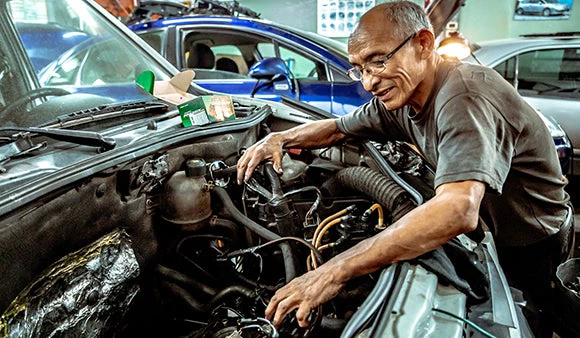The COVID-19 pandemic is uncharted territory – an uncertain, unprecedented, and overwhelming situation. But as the Spanish poet Antonio Machado once wrote, “The path is made by walking.” Already, one thing is abundantly clear: the impacts of COVID-19 will be grim in Latin America and the Caribbean. The novel coronavirus will affect the health of millions of people in the region, and it will have serious social, economic, and public policy implications . We also know that we must draw up a roadmap for the recovery of our societies. We must do this together – and begin now.
In “The Economy in the Time of COVID-19,” a report released a few days ago by Martín Rama, the World Bank's Chief Economist for Latin America and the Caribbean, the global and regional economic forecast is dire in 2020. The region’s economy is expected to shrink 4.6%. The International Monetary Fund is even more negative, forecasting a 5.2% contraction. These projections are not written in stone, of course. But whatever the end result, the impact on the region’s economies will be profound.
That is the scenario we have to work with in the short term. The recession, caused by a paralysis of activity and the necessity of social isolation, is leading to massive job losses. In the Caribbean, where many economies depend heavily on tourism, we estimate that some will see 50% of the working population lose their jobs.
In other countries, the problem stems from a plunge in the prices of raw materials, which are critical to the region’s economy. You have to go back to 1976 to find such low oil prices. The prices of other raw materials (for example, copper and soybeans) are also under pressure, and this means that many countries across the region are going to face formidable financial pressures from a decline in liquidity. It is a vicious cycle that is bound to get even worse when we consider that remittances sent from the United States and other developed countries, so vital for millions of families in the region, are expected to fall sharply.
It’s not hard to imagine how all of these elements will affect poverty and inequality. The poorest and most vulnerable people in our countries will suffer most. It’s crucial to do everything we can to mitigate that impact.
At the World Bank, we recognize the seriousness of the situation, and we have the commitment and capacity to support the health response, the social response, and the economic response . Work is already underway, focusing first on helping countries respond to the emergencies across the region. The health systems in Latin America were not prepared for the shock of the pandemic. So, we’ve moved quickly.
In a matter of days, new programs were approved, resources were redirected from projects already underway, and disaster contingency funds were released. Some $700 million is being deployed in 14 countries so far to acquire gloves, masks, respirators, and other critical medical supplies. The amount will grow as we continue talking with governments in the region about what they need.
This is only the beginning. Over the next 15 months, the World Bank’s assistance to developing countries will reach $160 billion. Much of this will benefit Latin America, helping its governments better deal with the health emergency . But while we are focusing our immediate efforts on containing the pandemic, we must also look further afield. We must develop strategies for economic and social recovery with the understanding that countries will be starting at the very bottom of the growth curve. This is a monumental challenge in a region that had lost economic momentum long before the spread of the coronavirus.
In this new stage, social protection programs will be more necessary than ever. And they must reach all affected sectors, especially to help the poorest people and informal workers, who will suffer the worst in this crisis. Efforts must be made to preserve jobs. The main productive sectors will need state assistance in the form of subsidies and tax deferrals. All of this burden will fall on states that already face delicate fiscal situations and a lack of liquidity because of scant credit and a rising capital outflows from the region. The needs will exceed what any traditional approach could address.
It is crucial that governments adopt forward-thinking policies right now. For example, they must spur international trade and not close their borders to goods and services, even though people cannot circulate freely right now. They must also provide support and working capital to small and medium enterprises, a source of millions of jobs. They must guarantee the health of the financial system, which will play a central role in the economic recovery, and they must make the investment climate their best asset so that private capital can return as soon as the health emergency allows it to. All of these challenges will require significant creativity as well as solidarity with those who have the least.
Decisions like the one adopted by the G20 days ago—to grant a moratorium on debt payments to the poorest countries—point us in the right direction. The World Bank advocated for such a measure from the outset, together with the International Monetary Fund, and we are pleased with the result. The beneficiary countries will be able to use these resources to meet their most immediate needs.
Containing the pandemic and mitigating its social and economic damage will be the starting point for recovery so that sustained growth and shared prosperity can follow. We must restart the productive engines of our countries and create jobs, the key to progress. And we must do this with determination, commitment, and creativity, planning now and implementing as soon as the health emergency subsides. As the words of Antonio Machado remind us, “By walking you make the path, and when you look back you see the path that never will be trod again.”
Let’s rebuild stronger and make sure this pandemic becomes a path that will never be trod again.



Join the Conversation